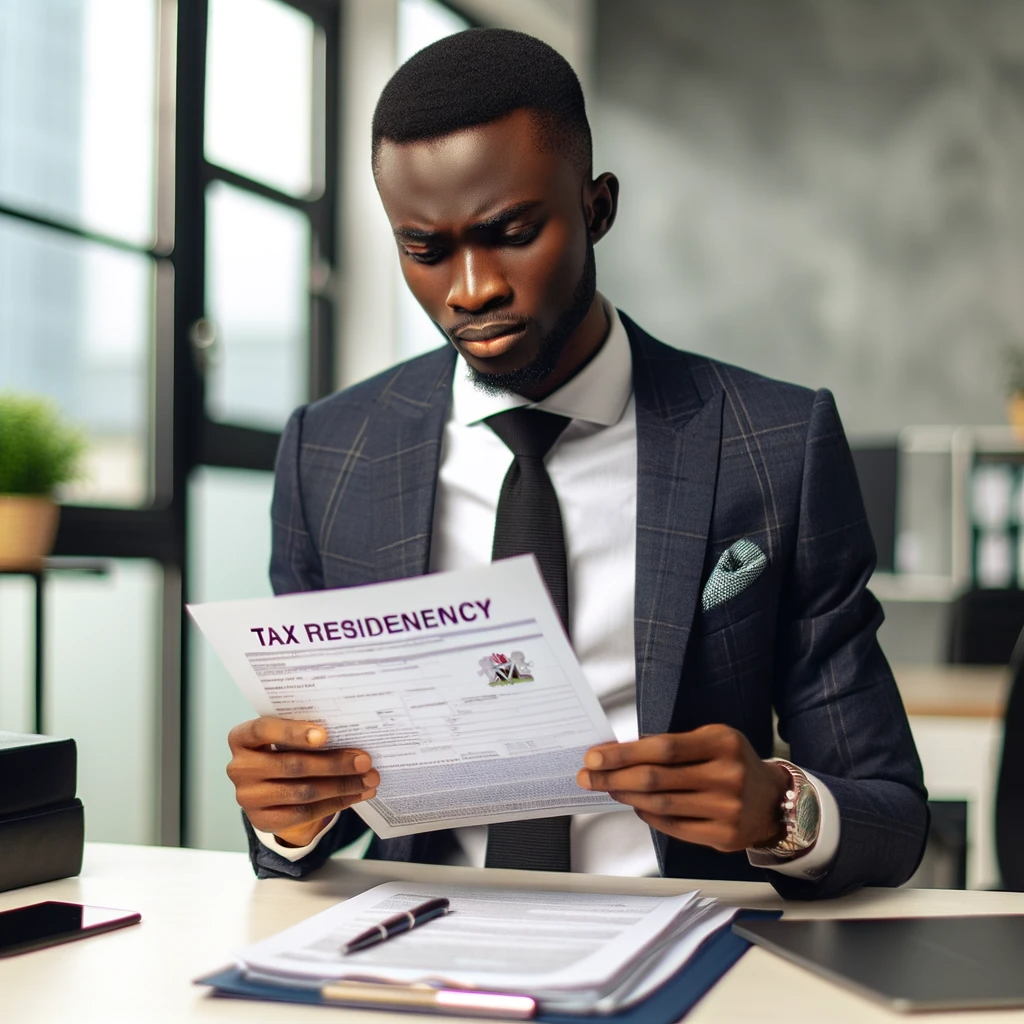Introduction
Brief Overview of Nigeria’s Legal System
Nigeria’s legal system is based on English common law tradition due to its colonial history.
It is a complex system with federal, state, and customary law components. Understanding this system is crucial for freelancers operating in Nigeria.
Importance of Understanding the Legal System for Freelancers
Freelancers need to know the legal system in Nigeria because it affects their work.
This knowledge is essential in ensuring that they comply with legal requirements, establish contracts, and resolve conflicts that may arise during their engagement.
Types of Laws in Nigeria
Nigeria is a federal country with a legal system that reflects its diverse cultural and religious backgrounds.
There are three main types of laws in Nigeria:
- Common law
- Customary law
- Sharia law
Freelancers doing business in Nigeria should be aware of the legal system to ensure they operate within its bounds.
Common Law
The common law system is often referred to as the English law system because it was introduced by the British during their colonial era.
This legal system is based on judicial precedent and is characterized by the use of statutes (written laws) and case law (legal decisions made by judges).
Common law applies to the entire country of Nigeria. It is the primary legal system used in commercial matters, contract law, and tort law.
The Nigerian legal system has also integrated common law principles into its criminal law.
Customary Law
Customary law is based on the traditional beliefs and practices of Nigeria’s indigenous people. It is administered by traditional rulers, such as village chiefs, and is often informal.
Customary law is unique to each ethnic group in Nigeria, and as such, there are many different customary laws that exist in the country. It covers various areas of law, including family law, land law, and succession law.
Customary law is practiced in rural areas in Nigeria. However, it has also been recognized by the country’s Supreme Court in the interpretation of the Nigerian constitution.
In some instances, customary law may be incorporated into common law in Nigeria as an equitable principle.
Sharia Law
Sharia law is based on Islamic principles and is practiced in the northern states of Nigeria, where the majority of the population is Muslim.
This law deals with many areas of law, including criminal law, family law, and property law.
Sharia law is administered by Islamic courts and is often seen as more conservative than common law and customary law.
Sharia law has been the subject of controversy in Nigeria, particularly in relation to its applicability to non-Muslims and its impact on human rights.
Comparison of the Three Laws
There are significant differences between Nigeria’s three legal systems. Common law is the most widely used legal system in Nigeria and is used in commercial and civil matters.
Customary law is practiced primarily in rural areas and covers traditional beliefs and practices. Meanwhile, Sharia law is applied in the northern states and is based on Islamic principles.
The Nigerian legal system is not without its challenges, however. Different legal systems can overlap, making it difficult to apply one system alone.
State and federal laws may also conflict with each other, leading to confusion and uncertainty. Nigeria’s legal system is still evolving and is subject to ongoing reform.
Essentially, freelancers operating in Nigeria should be aware of the country’s legal system to ensure they operate within its bounds.
Nigeria’s legal system is complex but is based on three main types of laws: common law, customary law, and Sharia law.
These legal systems have their unique characteristics, and freelancers should understand the differences between them before doing business in the country.
Nigeria’s legal system is constantly evolving, and it is essential to stay up to date with any legal changes that may impact freelance work in the country.
Read: Understanding Income Tax as a Nigerian Freelancer
Legal Framework for Freelancers
As a freelancer in Nigeria, it is important to have a good understanding of the legal framework that governs your business.
The legal system in Nigeria is complex and can be challenging to navigate, but it is essential to be well-informed if you want to protect your business interests.
Business Registration
One of the first things you need to do as a freelancer in Nigeria is to register your business with the Corporate Affairs Commission (CAC).
This is a requirement under Nigerian law, and failure to register your business can result in fines or even legal action.
Registering your business with the CAC gives you legal recognition and protects your business name from being used by others without your permission.
It also opens up opportunities to apply for grants and loans from government agencies and financial institutions.
Tax Laws
As a freelancer in Nigeria, you are also subject to tax laws. You need to pay your taxes regularly and on time to avoid penalties.
The tax laws in Nigeria can be complicated, but it is essential to have an understanding of them to avoid any legal issues.
If you are unsure of calculating your tax liabilities, seek assistance from an experienced tax consultant familiar with Nigerian tax laws.
This will help you ensure that you comply with the regulations and avoid any legal problems.
Intellectual Property Laws
Intellectual property laws protect the rights of creators and owners of original works such as music, books, and artworks.
As a freelancer in Nigeria, you need to be aware of these laws to protect your intellectual property rights.
Registering your intellectual property with the Nigerian Copyright Commission (NCC) gives you exclusive rights to use, distribute, and sell your work.
This also prevents others from using your work without your permission and protects you from copyright infringement lawsuits.
Contract Laws
Freelancers in Nigeria also need to be familiar with contract laws. Contracts are legally binding agreements between two or more parties, and as a freelancer, you need to ensure that you have a written contract with your clients.
A well-drafted contract protects you and your client’s interests by clearly outlining the scope of work, deadlines, payment terms, and dispute resolution procedures.
It is important to have a lawyer review your contract to ensure that it meets the legal requirements in Nigeria and protects your business interests.
To sum it up, as a freelancer in Nigeria, understanding the legal framework that governs your business is crucial. This includes business registration, tax laws, intellectual property laws, and contract laws.
By having a good understanding of these laws, you can protect your business interests, avoid legal problems, and focus on growing your business.
It is also important to seek the help of legal experts, such as tax consultants and lawyers, to ensure that you comply with the legal requirements and protect your business from legal issues.
Read: Intellectual Property Laws for Freelancers in Nigeria
Challenges Freelancers Face Within the Legal System
Freelancers are facing numerous challenges within Nigeria’s legal system, which pose a great setback to their career path.
Below are some of the most significant obstacles:
- Lack of Awareness: Many freelancers aren’t aware of the legal system’s various laws and regulations.
- Corruption: Corruption in the Nigerian legal system hinders freelancers from obtaining justice.
- Unfair Treatment of Freelancers: The legal system often treats freelancers unfairly, resulting in the loss of income and opportunities.
Lack of Awareness
The lack of awareness by freelancers about Nigeria’s legal system is quite alarming. Many do not know their rights as freelancers, and this leads to them being exploited by clients and employers.
As a result, many freelancers don’t have any legal backing or protection, making them vulnerable to exploitation.
Corruption
Corruption is a big challenge for freelancers who seek justice within Nigeria’s legal system.
Many of the officials responsible for upholding justice are corrupt and often side with the businesses or individuals with more financial power, leaving freelancers out of the equation.
This not only discourages freelancers but also makes them lose faith in the legal system.
Unfair Treatment of Freelancers
Clients or employers often treat freelancers unfairly during disputes, a common occurrence in the freelancing industry.
Many times, freelancers are being short-changed, not paid on time, or not paid at all. When a situation occurs, freelancers usually have to battle it out in court, which can be frustrating and time-consuming.
The Nigerian law does not recognize freelancers as employees, depriving them of essential benefits like healthcare and pension.
This has left many freelancers with no source of income when they fall sick or retire.
In essence, freelancers face many challenges within Nigeria’s legal system, which has led to many of them leaving the profession.
There is a need for the Nigerian government to put measures in place to address these challenges so that freelancers can focus on their work and contribute positively to the country’s economic growth.
Freelancers must understand that they have rights, and the legal system is there to protect them. They must take the initiative to seek knowledge and support to protect their interests.
With the proper understanding and implementation of laws designed for freelancers, Nigeria’s legal system will become more inclusive and supportive of all individuals within the workforce.
Read: Freelancing in Nigeria: Top Tax Mistakes to Avoid

Discover More: Guide to Double Taxation Treaties in Nigeria for Freelancers
Tips for Freelancers to Navigate Nigeria’s Legal System
Working as a freelancer in Nigeria can be both exciting and challenging. While there’s plenty of work opportunities available, the country’s legal system can be difficult to navigate.
As a result, it’s important for freelancers to be familiar with their rights and to take steps to protect themselves.
Conduct Research and Seek Legal Advice
The first step in navigating Nigeria’s legal system as a freelancer is to conduct research.
This means understanding the legal requirements for freelancers in Nigeria, such as obtaining a tax identification number and registering their business with the government.
Freelancers should also seek legal advice from a lawyer who is familiar with the country’s laws and regulations.
This can help them to identify any potential legal issues and to take steps to protect themselves, such as drafting contracts and agreements that protect their interests.
Network with Other Freelancers
Another important step for freelancers in Nigeria is to network with other freelancers. This can help them to stay up-to-date on developments in the industry, as well as to learn from the experiences of others.
Networking opens doors to new work opportunities, as freelancers can refer clients or projects matching their expertise.
Keep Accurate Records
Freelancers in Nigeria should also keep accurate records of their work, including contracts, invoices, and receipts.
This can help them to prove their income and expenses for tax purposes, as well as to protect themselves in the event of a legal dispute.
It’s important for freelancers to keep these records organized and accessible, such as by using a digital filing system or cloud storage.
Be Familiar with Your Rights as a Freelancer
Finally, freelancers in Nigeria should be familiar with their rights as independent contractors.
This includes understanding their rights under the Nigerian Labor Act, which provides some protections for freelancers regarding payment and working conditions.
Freelancers should also understand their rights regarding intellectual property, such as copyright and trademark law, as well as the terms of any contracts or agreements they enter into with clients.
Generally, navigating Nigeria’s legal system as a freelancer can be complex, but by conducting research, seeking legal advice, networking with others in the industry, keeping accurate records, and understanding their rights, freelancers can protect themselves and their businesses.
Read: How to Register for Taxes as a Freelancer in Nigeria
Conclusion
Recap of Important Points
Nigeria’s legal system is complex and multi-layered, with a mix of common law, customary law, and Islamic law.
Freelancers in Nigeria need to be aware of the legal requirements in their field and stay up-to-date on any changes or updates.
Reminder of the Importance of Legal Compliance for Freelancers in Nigeria
It’s important for freelancers to comply with the law and avoid any legal issues that could arise from non-compliance.
This includes registering your business, filing taxes, and obtaining necessary licenses or permits.
In Nigeria, legal compliance is crucial for freelancers to protect their business and reputation.
By following the legal requirements, freelancers can build a successful and sustainable business in Nigeria’s competitive market.




